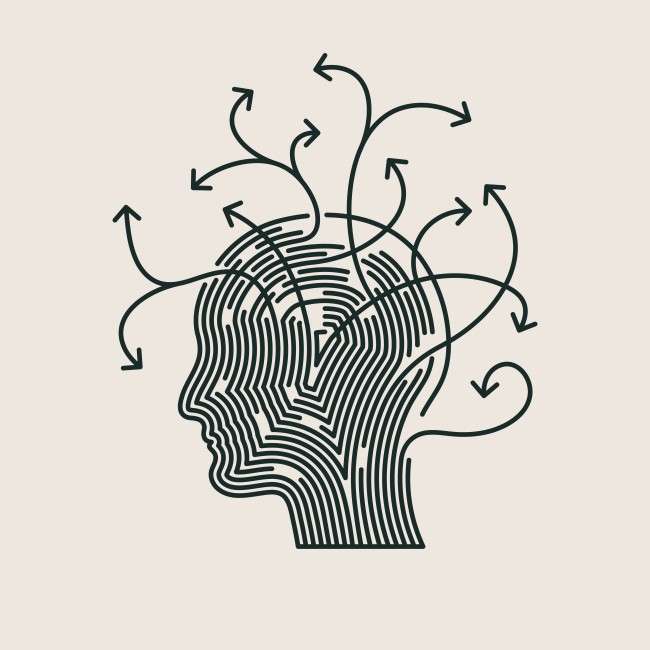Introduction
Obsessive-compulsive disorder (OCD) is a mental health condition that can disrupt daily life due to persistent, unwanted thoughts and repetitive behaviors. While mild forms of OCD might involve manageable rituals, severe OCD symptoms can significantly impact an individual’s well-being, making it difficult to function normally. Understanding severe OCD symptoms can be crucial in identifying the disorder early and seeking appropriate help. In this article, we’ll explore the symptoms that may indicate severe OCD and provide insights on managing them effectively.
What Is Severe OCD?
OCD affects people differently, but for those with severe OCD, symptoms can become overwhelming and disruptive. Severe OCD often includes distressing obsessions, intense anxiety, and compulsive behaviors that take up hours of each day. Recognizing severe OCD symptoms is the first step toward finding the right support and treatment options.
For those seeking the best OCD treatment, consider visiting:

1. Intrusive and Disturbing Thoughts
Many individuals with severe OCD experience intrusive thoughts that are distressing or taboo. These thoughts might include fears of harming oneself or others, intense fears of contamination, or unwanted, graphic images. While these thoughts are not a reflection of the person’s character or desires, they can lead to extreme anxiety.
2. Compulsive Rituals That Take Up Hours
In severe OCD, compulsive actions or rituals become time-consuming and interfere with daily responsibilities. For example, some individuals may wash their hands repeatedly for hours to alleviate contamination fears, while others may check locks or appliances multiple times to ensure safety. This behavior, however, often fails to relieve anxiety and can exacerbate stress.
3. Extreme Avoidance Behaviors
People with severe OCD may avoid places, people, or situations that trigger their obsessions or compulsions. For example, someone with contamination fears might avoid public spaces altogether, while others with certain intrusive thoughts may avoid loved ones due to the fear of acting on these thoughts. This can lead to isolation and impact personal relationships.
4. Inability to Distinguish Between Reality and Obsessions
In severe cases, individuals may struggle to differentiate between their obsessions and reality. They may become consumed by the belief that their fears or worries are true, causing extreme distress. For instance, someone with an intense fear of illness might believe they are always on the verge of becoming ill, despite no medical evidence.
5. Frequent Mood Swings and Depression
OCD is often accompanied by mood disorders like depression, especially when the symptoms are severe. The constant stress, guilt, and frustration from OCD can lead to depressive episodes and even suicidal thoughts in some cases. Mood swings and emotional instability are common as individuals struggle to cope with their symptoms.

6. Inability to Complete Daily Tasks
Severe OCD can interfere with a person’s ability to carry out everyday tasks. Basic responsibilities like going to work, attending school, or even managing household chores can become overwhelming. The compulsive behaviors consume significant time and energy, making it challenging to focus on essential tasks.
7. Obsessive Need for Perfectionism
Perfectionism is a common trait in those with OCD, but in severe cases, it can lead to obsessive behaviors that are hard to control. Individuals may feel the need to perform tasks in a particular order or ensure that things are placed exactly as they want. This obsession with precision can become exhausting and time-consuming, disrupting their life and causing intense anxiety if they are unable to meet these standards.
Managing Severe OCD Symptoms
Understanding and managing severe OCD symptoms involves adopting coping strategies and seeking support from mental health professionals. Here are a few recommended steps:
- Seek Professional Help: Consulting with a mental health professional trained in OCD treatment can be life-changing. Cognitive Behavioral Therapy (CBT) is a highly effective treatment for OCD and is recommended by many health authorities.
- Connect with Support Groups: Many people with severe OCD benefit from support groups where they can share experiences and learn coping strategies. Being part of a community can reduce feelings of isolation.
- Practice Stress Management Techniques: Techniques such as mindfulness, yoga, or deep breathing exercises can help reduce anxiety and provide relief from obsessive thoughts and compulsions.
For more information on OCD, consider visiting National Institute of Mental Health or Centers for Disease Control and Prevention.
Conclusion
Severe OCD symptoms can be incredibly challenging, but recognizing these signs is the first step toward effective management and treatment. If you or someone you know is experiencing these symptoms, seeking help from a mental health professional is crucial. With the right support, individuals with OCD can manage their symptoms and lead fulfilling lives.

